The day Roe v. Wade fell: Reactions inside and outside Greater Akron's only abortion clinic
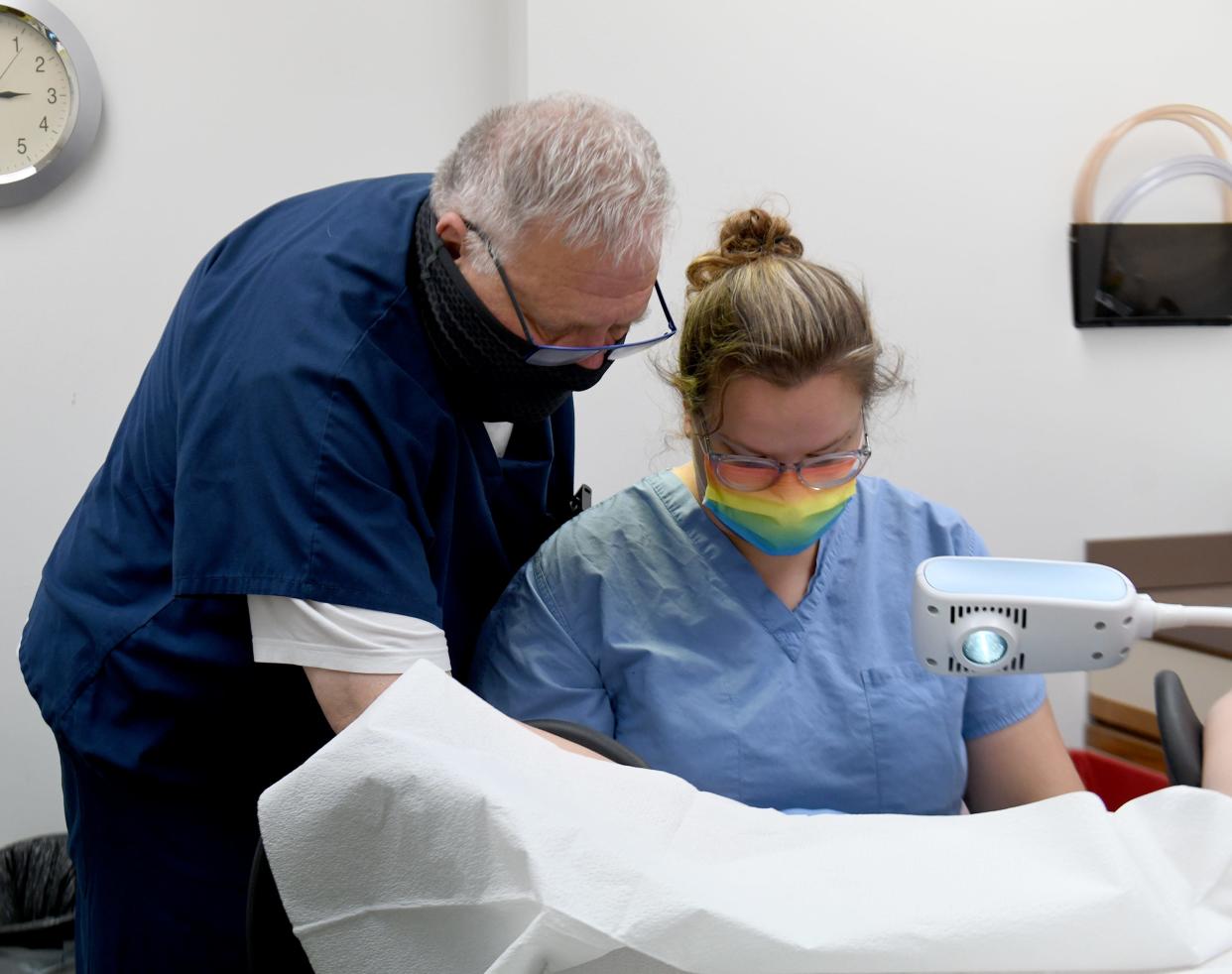
It’s loud outside the Northeast Ohio Women’s Center.
Cars whiz down State Road past the abortion clinic in Cuyahoga Falls. Drivers pound their horns and jab thumbs up in support of two anti-abortion protesters on the sidewalk. Other passersby scream profanities, calling them “Nazis" and "losers" with the flick of a middle finger. Men with signs shout at women as they walk into the clinic, denouncing abortion as a sin and offering them flyers with pregnancy resources.
Seventy-four-year-old Mark Kaufman pulls his car into the lot and hops out to yell in the faces of two men, who refused to give their names, holding American flags and a sign that says “Business closed 2022.”
"You're just an angry old man," the protester says.
“Yeah, I’m an angry old man with a granddaughter who you just turned into breeding stock,” Kaufman screams, engaging them in a six-minute long argument.
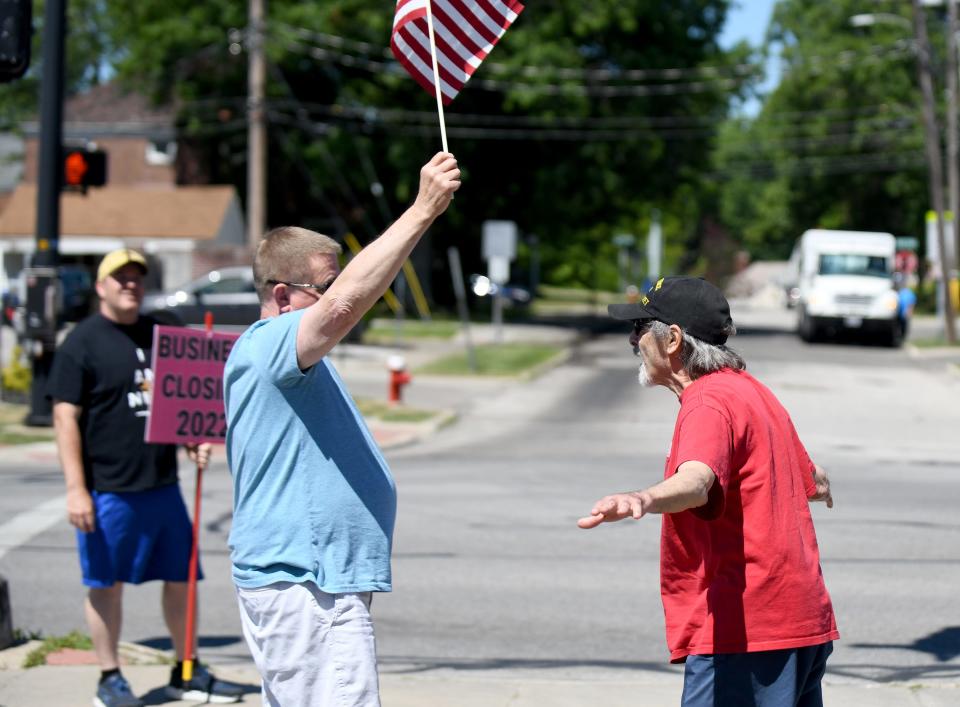
But inside, it’s quiet.
In the operating room, a gray-haired nurse holds the hand of a woman as a doctor works to numb her cervix before removing the fetus. The woman squeezes her eyes shut as the nurse gives words of encouragement in hushed tones.
“You’re doing great.”
It’s Friday, just hours after the U.S. Supreme Court released its decision on Dobbs v. Jackson Women's Health Organization. The majority opinion effectively overturned Roe v. Wade, a landmark case in the 1970s that ruled a state law banning abortion was unconstitutional.
On Friday afternoon, not much has changed for the staff of the Cuyahoga Falls clinic — one of six surgical clinics remaining in the state and the only abortion provider in Summit County — except for a few confused patients and an emboldened sense of determination.
“This is appalling for every woman,” says a woman in a bright pink vest named "Madre" who escorts pregnant people safely into the clinic. “But the fight’s not over. I have not yet even begun to fight.”
Abortion is still legal in Ohio, medical professionals continue to remind both those inside and outside the clinic on this historic afternoon. But they do not expect that to be the case for very long.
'It's no one's choice but your own'
Kelley Lott drops pills into a clear container. The tablets — which block hormones and force uterine contractions to terminate the pregnancy— clack against each other. She has tears in her eyes.
“I'm just trying to take it all in right now. I was able to have an abortion when I needed one,” says Lott, a nurse of 10 years. “I feel very sorry for women who now or soon can no longer make that educated decision with a health care professional.”
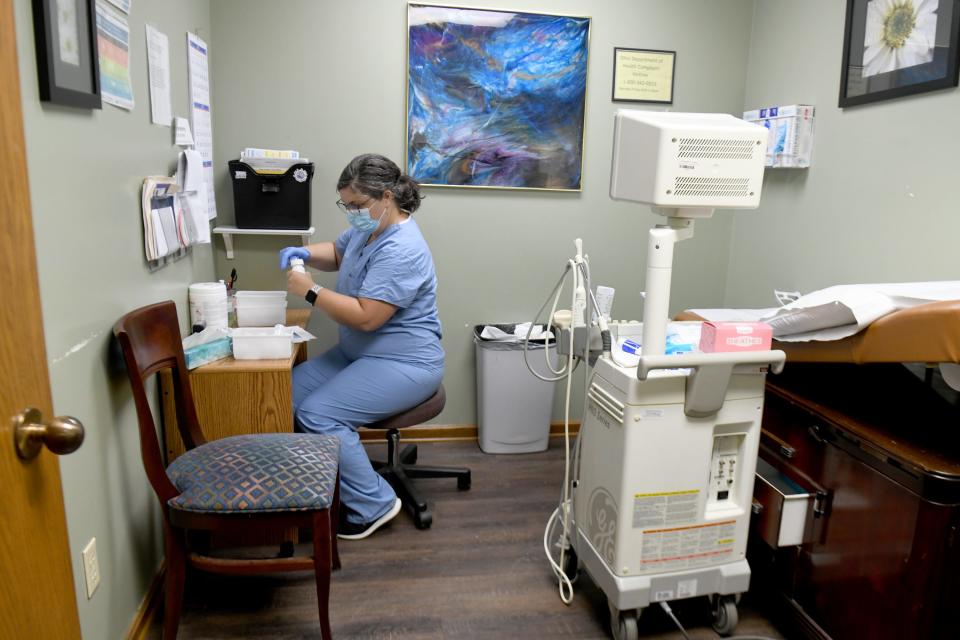
Her own abortion played a major role in her decision to continue this work.
"I wouldn't be where I am today. I wouldn't be doing this if it wasn't for this decision I was able to make. I have no regrets,” Lott says. “I'm here. I'm alive. it was safe. I feel so fortunate I had that option."
Roe V Wade reaction: Akron celebrates, mourns the end of constitutional right to abortion
In another room, Dr. David Burkons hands a 29-year-old woman those pills, explaining how they work and instructing her how to care for herself over the next few days. On the table, there’s a stack of flyers urging patients to vote: "THIS IS NOT A DRILL. Your rights are being taken away! Go to: VOTE.ORG."
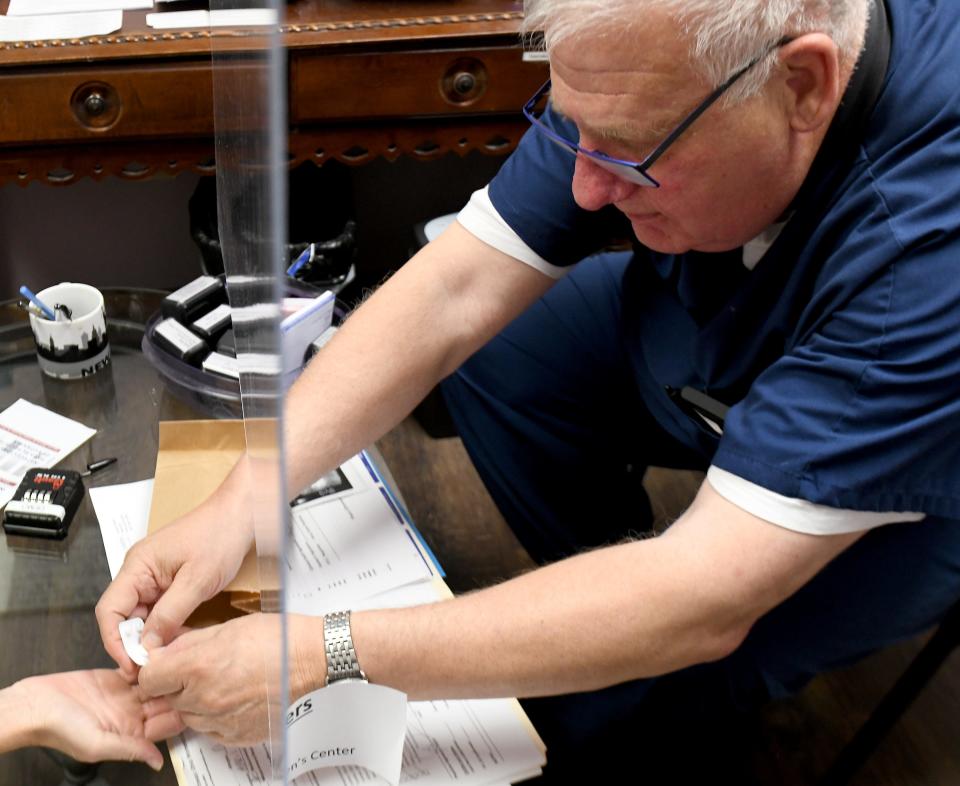
“I just graduated as a nurse practitioner,” the woman tells the Beacon Journal. She and the other patients are not being identified to respect their privacy and safety. “I just started my life and I just had so many plans, and this was completely unexpected.”
Burkons, one of Ohio’s most prolific abortion doctors, moves on to a Zoom appointment with a 29-year-old in Sandusky.
He gives the woman the code to a lockbox which contains the oral medications that will terminate her pregnancy. She received the box the day before at her “day one” appointment, a requirement by the state that mandates a 24-hour waiting period between an ultrasound and abortion. The lockboxes are a workaround his clinic implemented after Ohio banned patients from receiving abortion-inducing pills via mail.
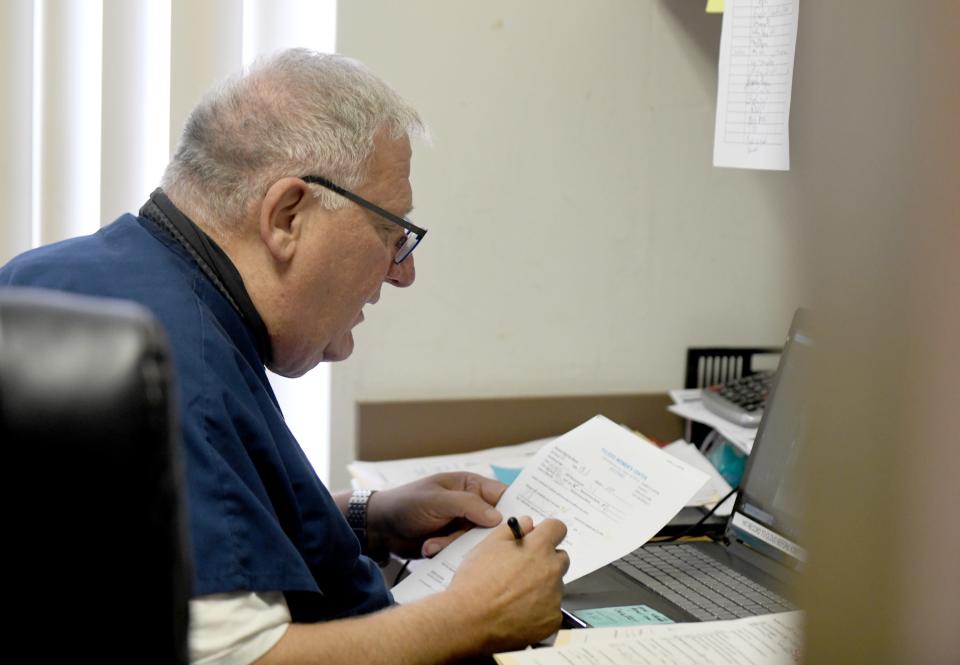
The woman already has two kids: a 5-year-old boy and a 3-year-old daughter.
“It’s literally more than my rent to pay for the day cares in this area,” she says. “So honestly, bringing a third in would be unfair to everyone involved.”
She calls the decision “very hard," citing her kids as a driving factor.
“I have always supported other people's decisions, but have always said I didn't think I could go through with it myself,” she says. “Then I was put in the situation.
"It's really easy to tell somebody what they should do until you are the person in the situation … It could be anyone. It's none of our business to know their stories or what they're going through or why they made their decision.”
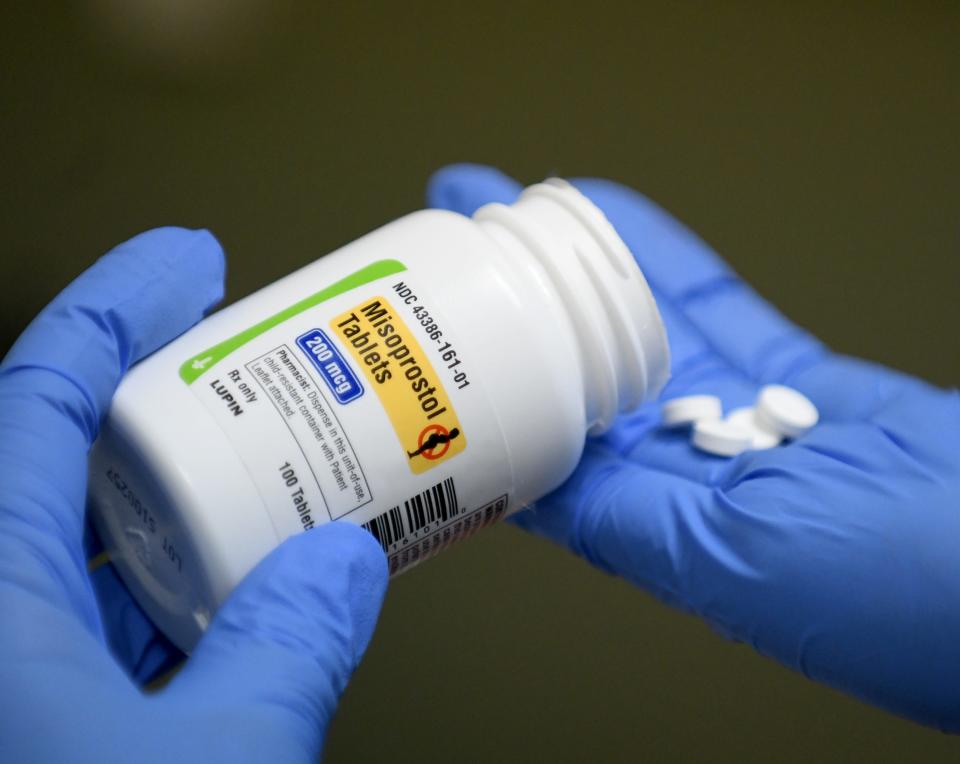
On a bench outside the clinic, a 21-year-old says she feels “too young” to have a baby. She wants to go back to school. She’s had several friends who became pregnant at a young age and has seen firsthand the “toll it takes.”
“You lose a lot of time. I’m not ready for it.”
Photos: Scenes from Akron after Supreme Court overturns Roe v. Wade, Ohio bans abortion
She’s relieved she still has access to an abortion because she is certain the clinic will be closed soon.
“I’m going to have to be really cautious now,” she says. “I’m glad I caught it now.”
New heartbeat law cancels appointments for many
For some, however, their decision to end their pregnancy comes a day too late.
A 15-year-old girl lays flat on the examination table. Her eyes stare at the tapestry on the ceiling, a swirling blue pond with lotus flowers and koi fish swimming above her head. Her mother anxiously strokes the girl’s hair as Lott presses an ultrasound probe to her stomach.
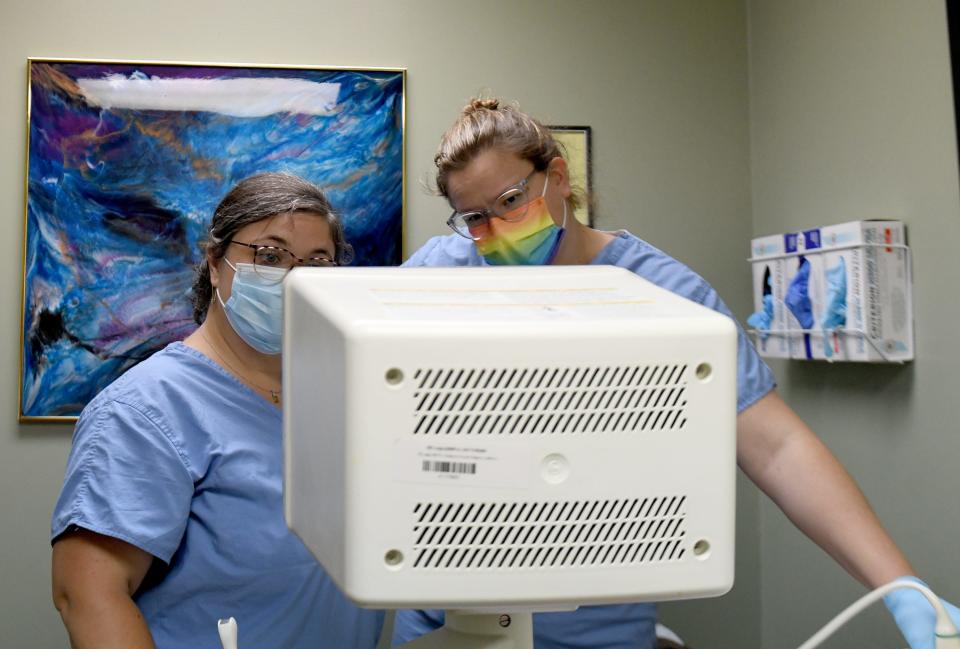
The girl is 13 weeks and six days along, putting her outside the range that would allow for a medical abortion via oral pills, which — until Friday evening — was up to 9½ weeks. She would have to have a surgical abortion.
“I know you’re not supposed to look things up on the internet,” she says nervously, picking at the Band-Aid on her thumb. “But I did. Is it going to hurt?”
Lott describes the process step-by-step.
“You’ll need someone to drive you home.”
“She can’t even drive yet, period,” her mother says with a forced laugh.
They schedule the procedure for next week — only to later be told it has to be canceled.
The teen will not be able to get an abortion, at least in Ohio.
Following the Supreme Court decision, Ohio’s Attorney General David Yost filed to make Ohio’s so-called “heartbeat bill” effective immediately. The measure, put on hold by the court while the fate of Roe v. Wade was determined, bans abortions after a fetal heartbeat can be detected, typically around six weeks gestation. Later Friday night, after the clinic was closed for the day, the court lifted the stay and abortion officially became illegal after six weeks in the state.
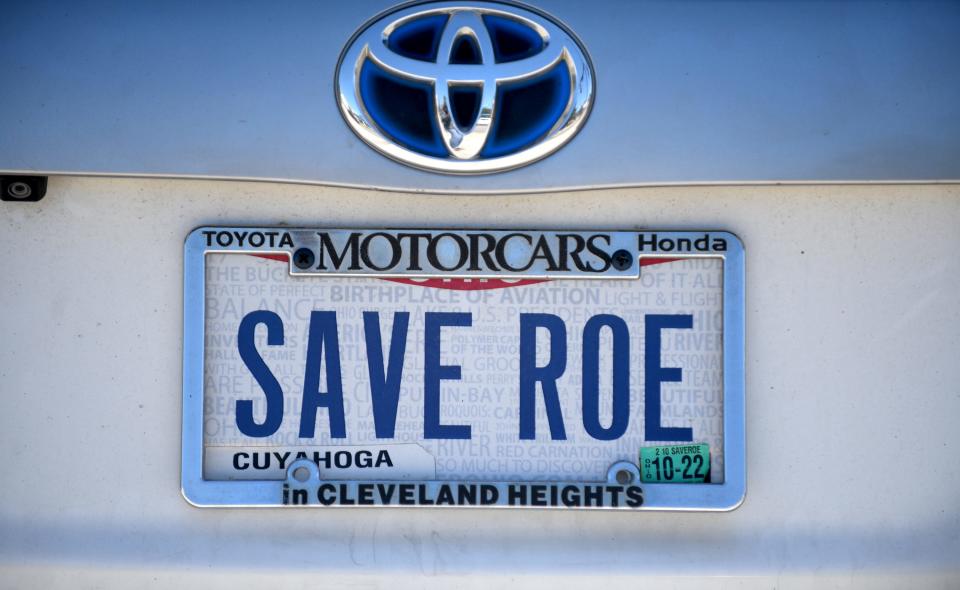
That changes things for the Northeast Ohio Women’s Center overnight.
“We expected we would have another couple weeks,” Burkons says on Saturday morning. He knew the heartbeat law would be passed and expects a total ban soon, effectively closing his practice, but he didn’t think it would be so soon.
Now, he and his staff will have to turn away many pregnant people who have already scheduled abortions, like the 15-year-old girl whose surgery was scheduled next week.
Under previous Ohio law, abortions could be performed up to 20 weeks post-fertilization, usually about 22 weeks after the last menstrual period.
Many women won’t even know they’re pregnant by the six-week cutoff. But early detection and swift action is all the clinic is now legally allowed to do.
“We’re going to change our scheduling to get people in very, very quickly,” he says. “We’re going to do everything we can to accommodate this new law while we can.”
Under new law, the right to an abortion hinges on the results of the ultrasound at their first appointment. If a heartbeat is detected, staff will direct patients to other states for the procedure.
“We don’t write the laws. We have to deal with reality," Burkons says. "For many of these people, they’re going to have to do something else. We can’t help them.”
A 'celebration' outside
While staff and patients mourn inside on Friday afternoon, there’s a celebration among a handful of anti-abortion protesters on the sidewalk.
“It's a day of celebration," says the man with the “Business closing 2022” sign who refused to give his name. "We took a step closer to God today as a country."
The man greets another man who approaches: "Congratulations! We're one step closer to ending murder and sin."
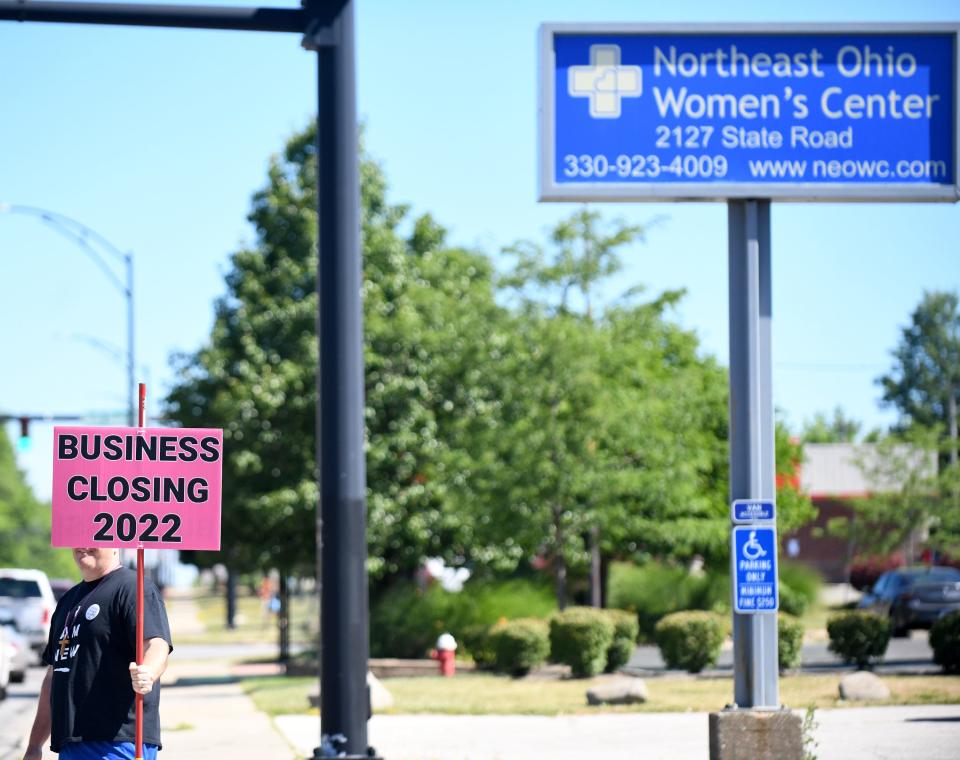
“Amen,” the other man, who also did not give his name, responds, waving a small American flag with a smile.
Others show up throughout the day, as well as police officers monitoring the scene. Clinic escorts, who far outnumber protesters, watch them from the parking lot, ensuring safety for patients entering the office.
"I usually come Saturday to escort women to the clinic,” says one woman who did not want to give her name for privacy and safety concerns. “We usually have quite a crowd yelling and screaming and saying factually inaccurate things to women who are just here seeking health care. It was really important for me to show my support today.”
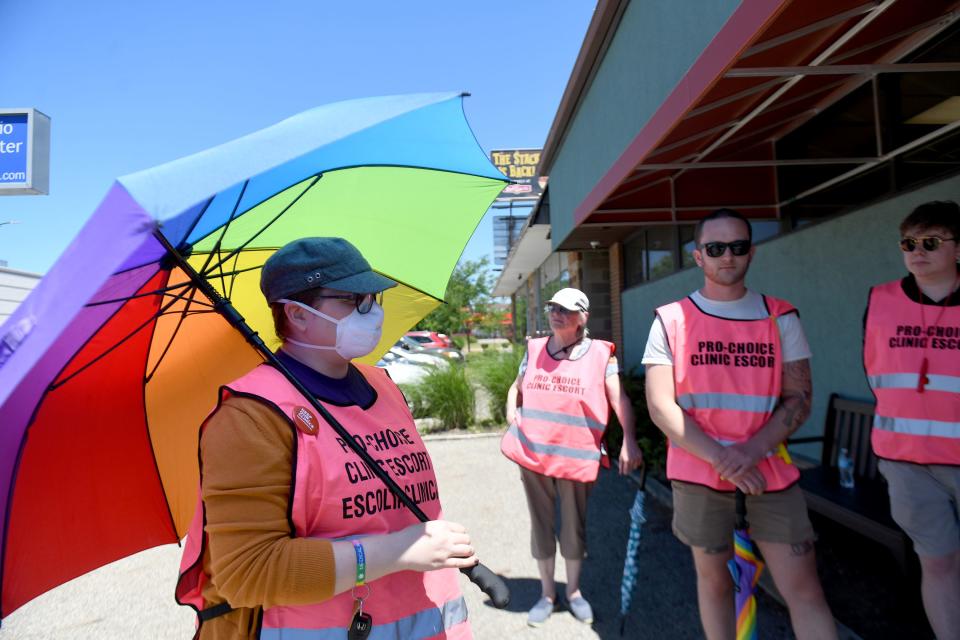
What’s next for the clinic?
While some passersby and patients bristled at the protester’s “Business closing” sign, Burkons admits it could be the end of his career.
Having graduated from medical school in 1973, the year the Supreme Court legalized abortion via Roe v. Wade, he has dedicated his whole career to medical access for people seeking abortion.
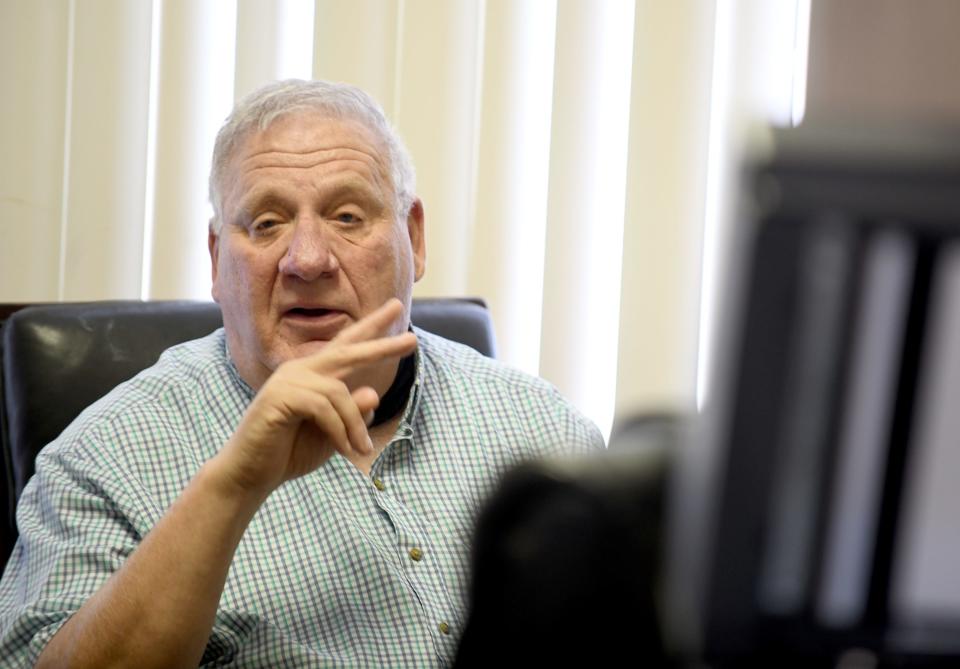
“We'll do everything we can within the law to keep providing abortions, but I wouldn't ask myself or the doctors or any staff to put themselves in legal jeopardy,” he says. “If it gets to a point where it's legally hazardous for us to keep providing access, I'll retire."
Even with the heartbeat law, his clinic will provide surgical and medical abortions, as long as it’s earlier than six weeks. Outside that window, he will refer patients to nearby states for abortion access.
“This is really important, fulfilling work,” he says. “It’s not surprising, but it’s disappointing. This is a major blow to women’s reproductive rights.”
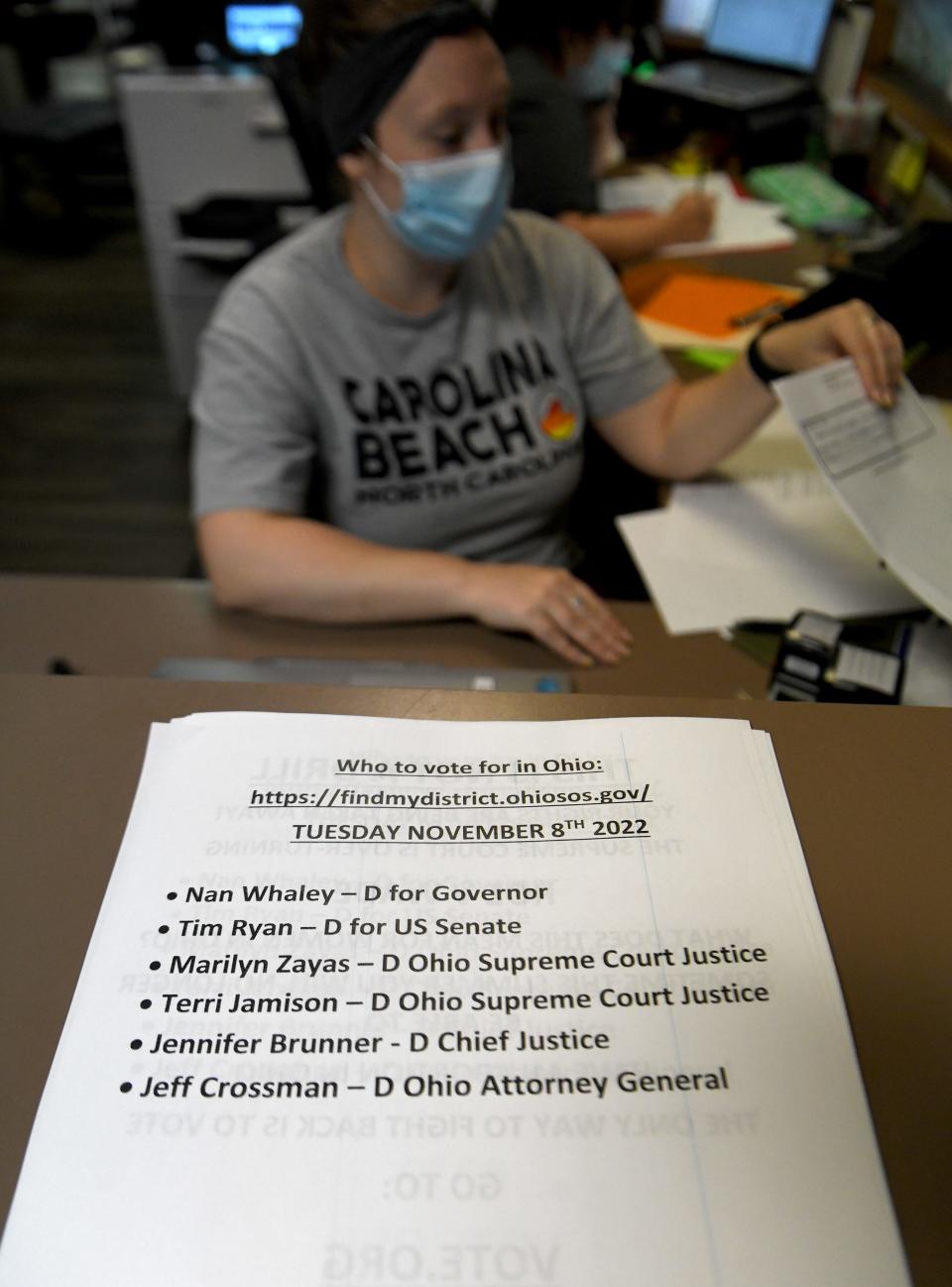
He’s not ready to give up yet. At the end of each abortion — whether he’s handing a woman pills or pulling off his gloves in the operating room — he asks if the woman is registered to vote.
“You know how important it is to vote,” he says, handing each one a paper listing Democratic candidates on Ohio’s 2022 ballot. “Especially after what happened today.”
Reporter Abbey Marshall is a corps member with Report for America, a national service program that places journalists into local newsrooms. Learn more at reportforamerica.org. Contact her at at amarshall1@gannett.com.
This article originally appeared on Akron Beacon Journal: SCOTUS abortion ruling: Reactions at a Northeast Ohio abortion clinic

